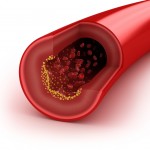
A number of studies have investigated the associations between periodontitis (PD) and cardiovascular (CV) disease. Carotid intima-media thickness (c-IMT) measurement is a non-invasive technique, which has been shown to correlate with the individual CV risk factor burden as well as the risk of future CV events, including coronary artery disease and stroke
The aim of this review was to address the question; What is the association between PD and vascular function as assessed by c-IMT and FMD (Flow-mediated dilation) and what is the impact of PD treatment on these variables in adult suffering from PD?
Methods
Searches were conducted in The Cochrane Oral Health Group’s Trials Register, Cochrane Central Register of Controlled Trials (CENTRAL), Medline, Embase, SCI-Expanded, Lilacs, SIGLE. Human Observational and experimental studies designs (cross-sectional, case- control, population surveys, cohort studies, pilot studies, controlled trials and randomized controlled trials) were considered. Two reviewers carried out study selection and data abstraction. Cohort, case-control and cross-sectional studies were assessed for quality using the Newcastle-Ottawa Quality Assessment Scale (NOS)
Results
- 35 publications were included with 22 contributing to the meta-analysis.
- The majority of the studies (25) were observational. According to the NOS the majority of the studies were categorized as low or medium risk of bias.
- Meta-analysis demonstrated that the diagnosis of PD was associated with
- a mean increase in c-IMT of 0.08 mm (95% C.I. = 0.07-0.09) and
- a mean difference in FMD of 5.1% compared to controls (95% C.I. = 2.08-8.11%).
- meta-analysis of the effects of periodontal treatment on FMD showed a mean improvement of 6.64% between test and control (95% C.I. = 2.83-10.44%).
Conclusions
The authors concluded
This review demonstrated an association between increased c-IMT, impaired FMD and PD. Data from intervention studies suggested a beneficial effect of periodontal treatment on FMD indicating an improvement in endothelial function. The findings support investigation of periodontitis treatment on cardiovascular outcomes.
Commentary
While most of the studies were observational and were rated as being of low to medium bias the was considerable variation in the definitions of PD, observed population, carotid segments studies and the definition of c-IMT. Also, as has been noted in other studies comparing PD and CV PD shares a number of important risk factors with CV.
The mean difference between the two group found in the meta-analysis was 0.08mm and vidence suggests that for every 0.1 mm difference in c-IMT, the relative risk of future myocardial infarction increases of 1.15 times (95% CI, 1.12-1.17) and for stroke increases of 1.18 times (95% CI, 1.16-1.21).
We recently reported on a Cochrane review (Dental Elf -1st Sept 2014) that found only low quality evidence which was insufficient to support or refute whether periodontal therapy can prevent the recurrence of CVD in the long term in patients with chronic periodontitis. Although a 2013 review by Teeuw (Dental Elf- 16th Dec 2013) did find that periodontal treatment reduced some biomarkers of atherosclerotic disease they did not included c-IMT or FMD.
Links
Orlandi M, Suvan J, Petrie A, Donos N, Masi S, Hingorani A, Deanfield J, D’Aiuto F. Association between periodontal disease and its treatment, flow-mediated dilatation and carotid intima-media thickness: A systematic review and meta-analysis. Atherosclerosis. 2014 Sep;236(1):39-46. doi: 10.1016/j.atherosclerosis.2014.06.002. Epub 2014 Jun 17. Review. PubMed PMID: 25014033.
Dental Elf – 1st Sept 2014 – Can treating periodontitis help prevent heart disease?

Periodontitis; SR suggests association with greater subclinical atherosclerosis as assessed by increased c-IMT. http://t.co/MmGnxld6Qh
Periodontitis and atherosclerosis: More robust studies are needed to improve our understanding of these associations http://t.co/MmGnxld6Qh